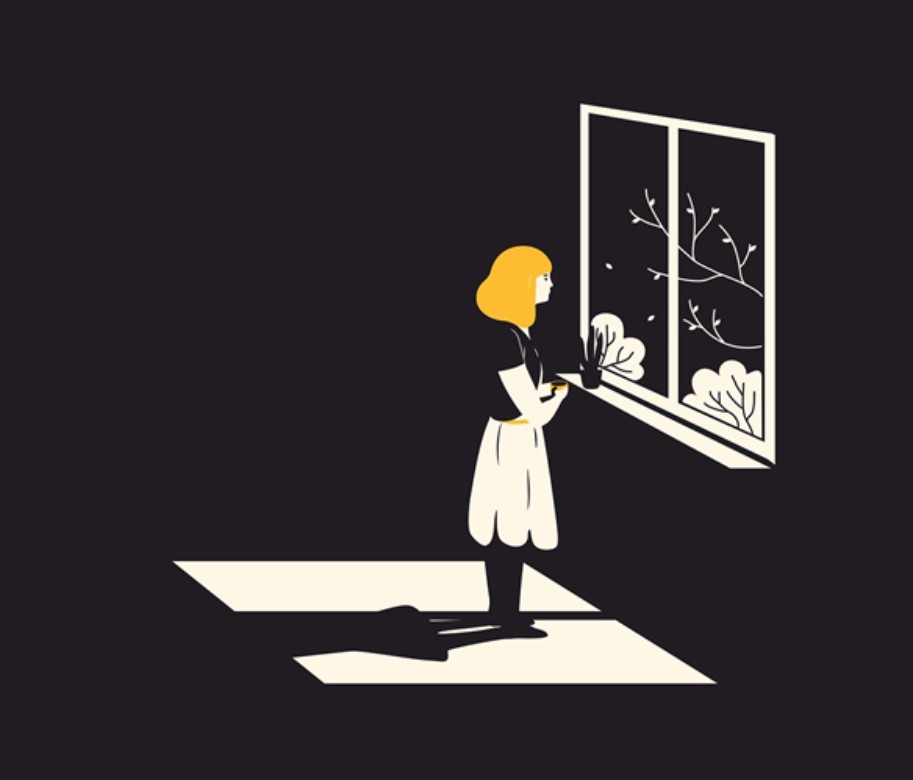Any health treatment not classified under the standard Western medical practice is called alternative, complementary, or integrative. This practice consists of various disciplines that include everything from your debit to extends, mental conditioning, and lifestyle, and it can apply to all kinds of illnesses, including depression. Before venturing into the main topic, let’s shed some light on the whole concept of depression.
Depression, whether major or clinical, is a health condition characterized by an intense feeling of hopelessness, worthlessness, emptiness, and despair. This can affect a person’s life activities, including work, eating, sleeping, etc. Depression can be due to one or more factors like chemical imbalances, too much stress, traumatic experiences, significant life changes, and more.
The two common treatments for depression in Western medicine are psychotherapy and medications. In psychotherapy, a therapist will talk to the patient while a psychiatrist will provide medications like selective serotonin inhibitors.
In many cases, these treatments are adequate, but there are still situations where the patient doesn’t respond to them or wants a supplement treatment, and that’s when they consider alternative options.
Click here to learn more about selecting a selective serotonin inhibitor.
Keep in mind that just like no Western medicine and psychotherapies will guarantee a cure for depression, the same applies to alternative treatment. Still, they are considered to be safe. This article will explore some alternative options for depression therapy in Hollywood, Los Angeles, California.
Herbal Remedies and Modern Medicines

One of the known herbal remedies used as an alternative therapy is St. John’s wort. This remedy has been used for thousands of years, although there isn’t any scientific paper that proves its effect in treating moderate to severe depression.
Ginkgo biloba is also thought to improve memory and other intellectual functions but there is no consistent evidence. These herbal medicines are taken orally. Also, modern brain spas offer solutions like the ketamine depression therapy Los Angeles, CA, which is highly effective for stress management. From anesthetic to party drug to antidepressant, ketamine has evolved significantly since the 1960s. Furthermore, emergency responders give it to an agitated patient.
Acupuncture
This is an old-known medication alternative used to treat a wide range of illnesses. The process involves sticking strong needles into specific points in the body. The needles correct imbalances by stimulating the body’s ability to resist or overcome illnesses. It also stimulates the body to release more chemicals to reduce or eliminate painful sensations.
Reflexology
The nerves in the hands and feet are connected to almost every body part. Reflexologists believe the healing process can be stimulated by applying pressure to certain aspects of the body.
Exercise
Walking, running, swimming, and other moderate exercises have been shown to reduce depression symptoms. A study has discovered that 150 minutes of moderate-intensity exercise can reduce anxiety and depression symptoms.
Meditation
Meditation involves placing the body at rest; in this position, the mind is cleared and focused on only one thought, a word, phrase, or particular scenery. Meditation can be practiced regularly, and the best aspect of it is that it doesn’t require much time; a simple 10 minutes every day can go a long way in managing depression.
Massage
Massage therapists utilize their hands to rub areas of the body. Massage usually promotes mind and body connection, allowing you to better understand what’s happening in your body. Some of the types of massage considered suitable for depressed individuals are Swedish massage techniques, Reiki, aromatherapy, craniosacral therapy, and other related.
Read https://www.wikihow.com/Give-a-Massage to learn more about how to perform a massage.
Guided imagery
This technique helps you create calm and peaceful images in your mind. It’s also considered a mental escape for therapeutic purposes. It can be a tremendous psychological strategy to improve an individual’s coping skills.
Yoga
Yoga is a breathing technique that helps energize the body when you are lying down or helps you calm down when you are anxious. Usually, breathing is connected to the mind and body; changing the breathing technique can help the body mentally and physically.
Deep breathing
When stressed, individuals tend to inhale and exhale quick breaths or even have difficulty trying to catch their breath. By taking a deep breath, the lungs will be filled with oxygen, which will help lower the heart rate. Focusing the mind on the breathing process will shift it from the cause of stress.
Conclusion
Western medicines are seen to be effective in managing depression, but not all the time. More so, some people prefer alternatives like herbal medicines, acupuncture, guided imagery, yoga, deep breathing, and a lot more. These techniques are considered effective antidepressants. Moreover, it’s not all about taking drugs all the time; sometimes, a simple meditation for 10 minutes can go a long way in calming the mind and reducing restlessness, emptiness, and anxious feeling.